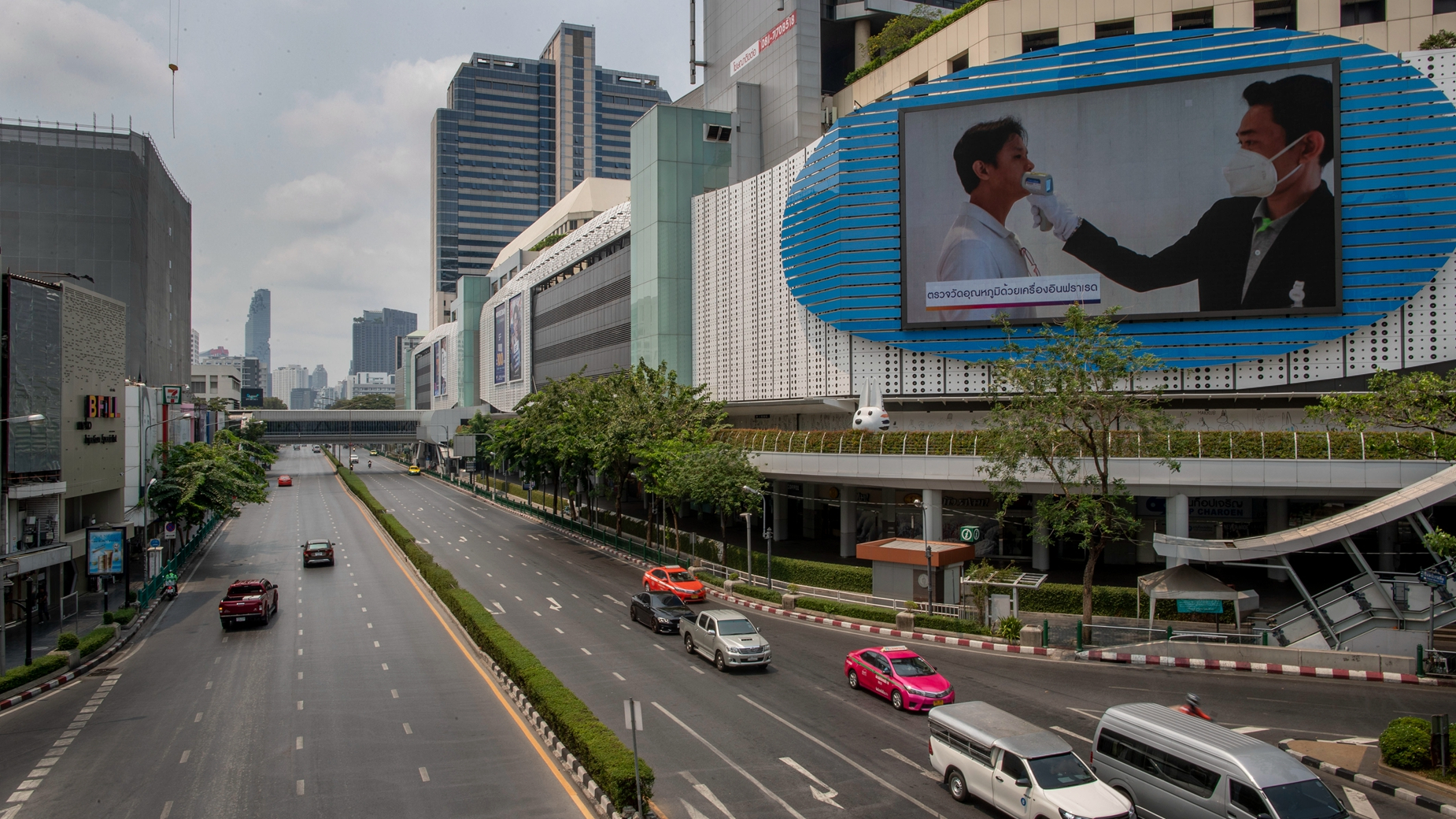
Tourists swim on a beach in Phuket, Thailand, March 26, 2020. /AP
Tourists swim on a beach in Phuket, Thailand, March 26, 2020. /AP
Thailand's popular tourist island Koh Samui in the southern province of Surat Thani on Monday announced that it will impose a ban on people entering the resort island from Tuesday until the end of the month to contain the COVID-19 pandemic.
"No one will be allowed to enter Koh Samui unless they have a health certificate from a public hospital issued within the previous 72 hours, confirming that they are not infected with COVID-19," said Koh Samui Mayor Ramnet Jaikwang, with exceptions of those working in sectors of essential goods, energy, finance, consumer products, postal services and public health.
The Koh Samui mayor warned that violators will be liable to a fine of up to 20,000 baht (608 U.S. dollars).
Phuket closes hotels
The resort island of Phuket closed all its hotel services from last Saturday, Phuket Governor Pakkapong Thaweepat announced last week.
Guests already staying in hotels in Phuket can stay until their scheduled departure date, but hotels are not allowed to accept new guests starting from Saturday, said the governor.
The new order also requires hotel managements to report to Phuket districts of the remaining guests so that health officers can screen them and monitor their condition. Hotels in Phuket which have been converted into field hospitals are not affected by the order.
Not only in Phuket, all hotels in Pattaya and elsewhere throughout Chonburi province in eastern Thailand have also been ordered to temporarily close, Chonburi Provincial Governor Phakharathorn Thianchai confirmed on Friday.
Any hotels where some guests might currently stay are obliged to notify respective chief district officers within three days, according to the provincial governor.
Meanwhile, all hotel employees are prohibited from leaving Pattaya or Chonburi where entry and exit of other people, especially including foreign visitors, are yet to undergo a stepped-up screening process, Phakharathorn said.

A video about the prevention of the novel coronavirus is shown on a giant screen in an intersection in Bangkok, Thailand, April 2, 2020. /AP
A video about the prevention of the novel coronavirus is shown on a giant screen in an intersection in Bangkok, Thailand, April 2, 2020. /AP
Foreign arrivals since March 19 have dropped dramatically after the Thai government imposed stringent travel restrictions, including travelers to carry "fit-to-fly" medical certificates, 100,000 U.S. dollars health insurance coverage and a 14-day mandatory quarantine at designated hotels at the visitor's own expense.
With the emergency decree and curfew placed, Thai Prime Minister Prayut Chan-o-cha said that military troops will join police and local administration officials from Friday night to patrol streets and stand guard at road blocks in Bangkok and all provinces across the country, to enforce the 10 p.m. to 4 a.m. (local time) curfew.
Thai police spokesman Pol Lt-Gen Piya Uthayo warned on Friday that curfew violators could face two years in prison and/or a 40,000 baht (1,213 U.S. dollars) fine.
Those who work night shifts need to carry their identification cards and letters from their employers explaining the nature of the work that requires them to work late at night.
Surat Thani province has on Monday confirmed 17 new cases of COVID-19, six of them at Koh Samui, according to the Surat Thani Provincial Public Health Office.